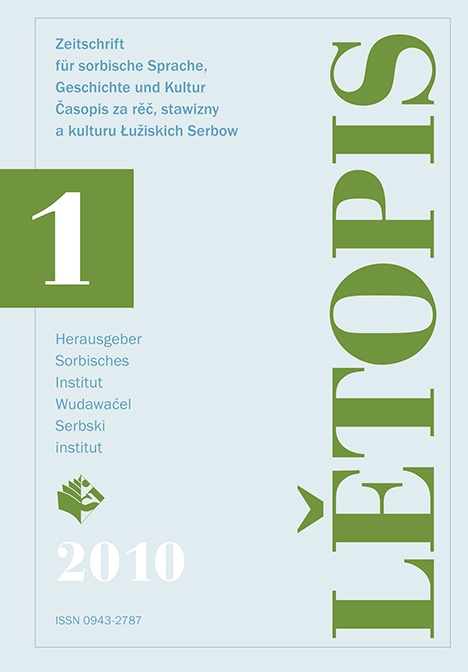Lužickosrbská rozhlasová vysílání v 1. polovině 20. století. II. část: Dodatek k I. části a pořady z roku 1930
Historical recordings of the Sorbian language and music from the years 1907–1938 (Part II)
Author(s): Viktor VelekSubject(s): Music
Published by: Domowina-Verlag GmbH / Ludowe nakładnistwo Domowina
Keywords: sorbian music; radio; recordings; 20th century; lužickosrbska hudba; rozhlasová vysílání; rozhlas; 20. století; Bjarnat Krawc; Krawc; Kurt Arnold Findeisen; Findeisen; Jan Skala; Skala
Summary/Abstract: The second article in this series on the history of radio programmes with Sorbian themes provides in the first instance small additions to the first article (Part I appeared in Lětopis 1/2007) and then an index in chronological order of the broadcasts from 1930. First of all the activities of non-German radio stations are listed, of which none had as large a range as the two German-language stations. In this context there was firstly the matter of the oratorio, “Serbski kwas” (Sorbian Wedding), which caused a strong disagreement between the journalist, Jan Skala, and the composer, Bjarnat Krawc-Schneider. The basis of the argument concerned the question as to whether it was justified to allow a programme about the Lusatian Sorbs to be broadcast only in the German language. The broadcast “Egg-rolling and Easter Riding in Lusatia”, which had already been broadcast in part in Sorbian, then demonstrates that this discussion influenced later programmes. In the interests of objectivity articles in the German press, as well as statements by the broadcaster, Kurt Arnold Findeisen, were also taken into account. Findeisen was accused by Skala of a lack of understanding of the whole question, while Krawc indirectly denied him the right to allow singing in Sorbian or the use of the Sorbian language in German radio programmes.
- Issue Year: 2010
- Issue No: 1
- Page Range: 50-64
- Page Count: 15
- Language: Czech
- Content File-PDF

